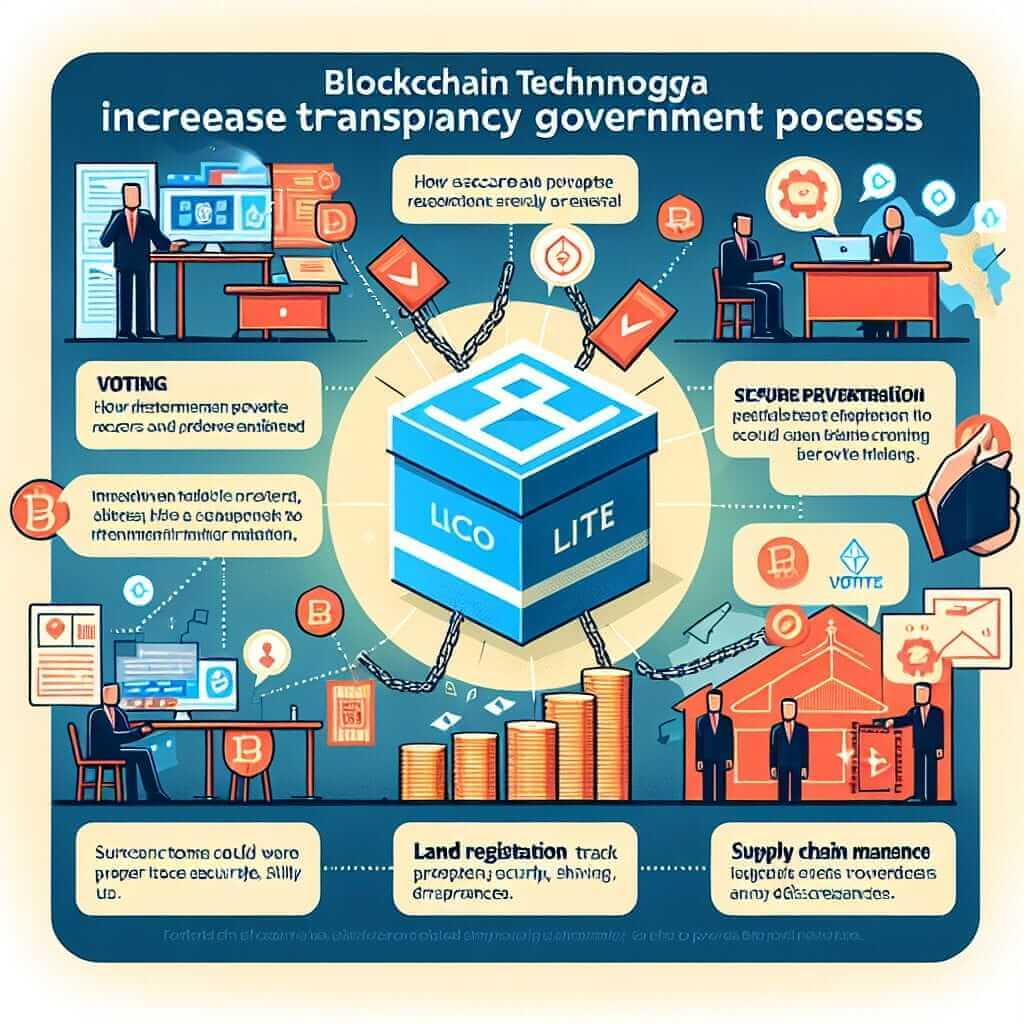The Reading section of the IELTS exam tests a candidate’s ability to read and comprehend academic texts. With topics varying widely, it is essential to stay current on trending and high-frequency subjects. One such topic is the application of blockchain technology in enhancing government transparency. As blockchain continues to revolutionize various sectors, its role in government transparency remains a notable subject, making it a potential topic for IELTS Reading passages.
Reading Passage and Questions
In this segment, I will provide a practice reading passage along with a set of questions tailored to the IELTS format. This will help you familiarize yourself with potential exam content and effectively prepare for the test.
Reading Passage
Title: The Role of Blockchain Technology in Government Transparency
Blockchain technology, often associated with cryptocurrencies, has found extensive applications beyond financial transactions. One of the emerging uses of blockchain is enhancing government transparency and combating corruption. This decentralized ledger system ensures that all transactions are recorded in a manner that is immutable and publicly verifiable, thus significantly increasing transparency in governmental operations.

Governments worldwide are exploring blockchain to foster transparency in various sectors, including public procurement, voting systems, land registries, and identity verification. For instance, in Ukraine, the government adopted the ProZorro system, a blockchain-based platform for public procurement. This platform aims to reduce corruption by ensuring that public contracts are accessible and traceable, thereby holding officials accountable.
Moreover, blockchain’s application in voting systems represents a significant leap forward in ensuring the integrity and transparency of elections. Countries like Estonia have implemented blockchain in their voting processes, which has led to higher voter trust and participation. Blockchain can securely record votes in a tamper-proof ledger, making electoral fraud exceedingly difficult.
In the realm of land registries, blockchain has the potential to eliminate fraud and disputes over land ownership. By storing land records on a decentralized ledger, alterations become challenging, ensuring that all transactions are transparent and verifiable. This approach is already being tested in countries like Georgia and India, where reliable land ownership records are crucial for economic development.
Identity verification is another area where blockchain can enhance government transparency. Traditional identity management systems often suffer from inefficiencies and are prone to corruption. Utilizing blockchain for digital identities can offer a secure and transparent mechanism, protecting citizens’ data while ensuring only authorized parties access sensitive information.
In conclusion, blockchain technology offers a robust mechanism for enhancing transparency and accountability in government operations. As more governments adopt this technology, its potential to transform public sectors grows, bolstering the fight against corruption and promoting trust in governmental processes.
Questions
Multiple Choice
-
What is the primary purpose of blockchain technology in government transparency?
- A. To ensure financial privacy
- B. To offer tax rebates
- C. To record transactions in an immutable and verifiable manner
- D. To facilitate online shopping
-
Where has the ProZorro system been implemented?
- A. Estonia
- B. Georgia
- C. Ukraine
- D. India
True/False/Not Given
-
Blockchain can help increase voter trust in elections.
- True
- False
- Not Given
-
India has entirely adopted blockchain for its land registry system.
- True
- False
- Not Given
Sentence Completion
- One of the benefits of using blockchain in identity verification is _____.
Answer Key with Explanations
- C. The primary purpose highlighted in the passage is that blockchain ensures all transactions are recorded in a manner that is immutable and publicly verifiable.
- C. Ukraine is noted for implementing the ProZorro system for public procurement.
- True. The passage mentions that countries like Estonia have implemented blockchain in their voting systems, leading to higher voter trust.
- False. The passage states that blockchain is being tested in countries like India, but it does not mention full adoption.
- One of the benefits of using blockchain in identity verification is offering a secure and transparent mechanism for protecting citizens’ data and ensuring only authorized access.
Common Mistakes in Reading Comprehension
- Skimming and Scanning: Many students either skim too quickly, missing vital details, or scan ineffectively without grasping the overall context.
- Misinterpreting Questions: Always pay close attention to what the question is asking. Keywords in questions often lead directly to the answers.
- Vocabulary Overload: Do not get stuck on unknown words; try to understand the sentence’s overall meaning.
Vocabulary Highlights
- Immutable (adjective) – /ɪˈmjuːtəbl/ – Unchanging over time or unable to be changed.
- Tamper-Proof (adjective) – /ˈtæmpəpruːf/ – Designed to be protected from illicit alteration.
- Ledger (noun) – /ˈledʒə/ – A book or other collection of financial accounts.
Key Grammar Structures
- Passive Voice: Often used in academic writing to emphasize the action rather than the doer. Example: “Blockchain can securely record votes in a tamper-proof ledger.”
- Relative Clauses: Useful for providing additional information without creating lengthy sentences. Example: “Countries like Estonia have implemented blockchain in their voting processes, which has led to higher voter trust.”
Advice for IELTS Reading Preparation
To score high on the IELTS Reading section, practice regularly with various topics to increase your familiarity with different types of passages. Focus on mastering skimming and scanning techniques, and ensure you understand common IELTS question types. Additionally, expand your academic vocabulary and refine your grammar to better comprehend and interpret texts.
Finally, stay updated on current topics and trends, as this will aid not only in your reading comprehension but also in other sections of the IELTS exam.